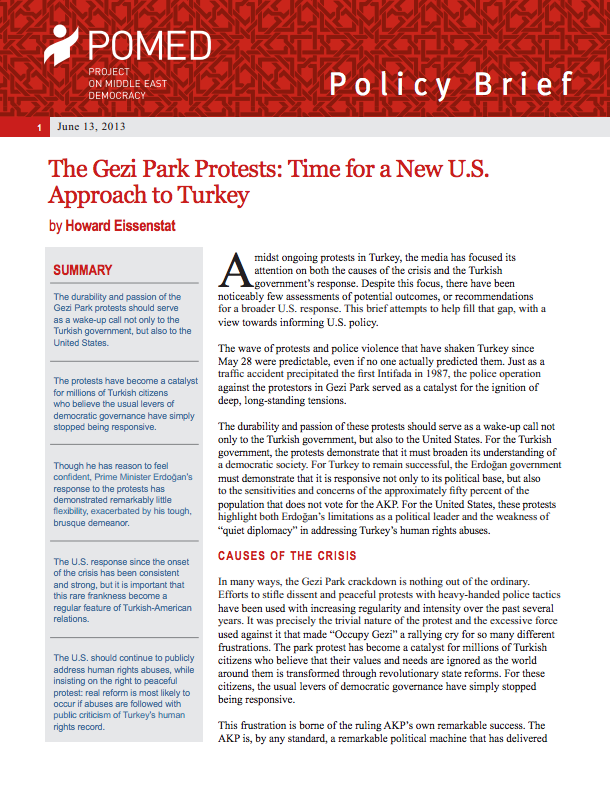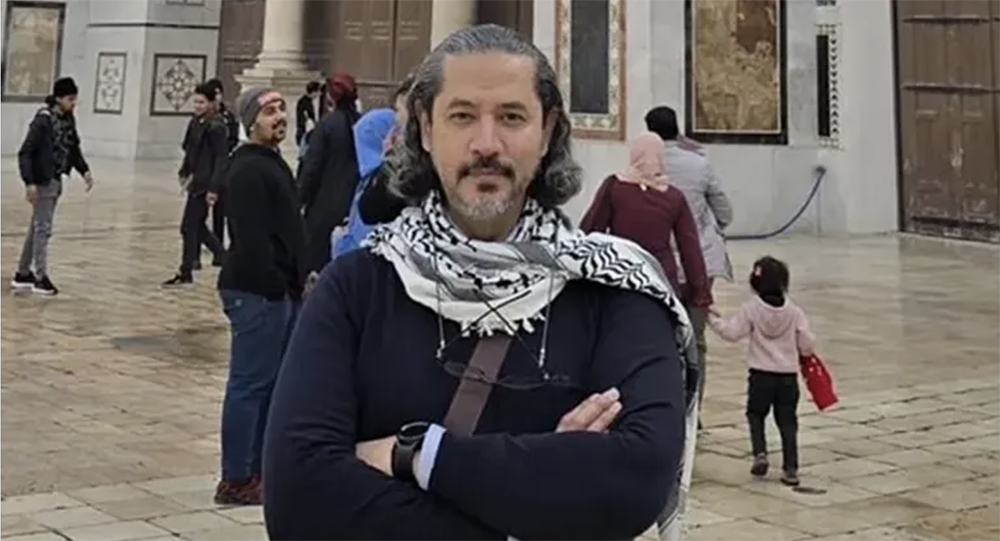For a full text copy of the brief, click here.

Amidst ongoing protests in Turkey, the media has focused its attention on both the causes of the crisis and the Turkish government’s response. Despite this focus, there have been noticeably few assessments of potential outcomes, or recommendations for a broader U.S. response. This brief attempts to help fill that gap, with a view towards informing U.S. policy. The wave of protests and police violence that have shaken Turkey since May 28 were predictable, even if no one actually predicted them. Just as a traffic accident precipitated the first Intifada in 1987, the police operation against the protestors in Gezi Park served as a catalyst for the ignition of deep, long-standing tensions.
POLICY RECOMMENDATIONS
- The U.S. should continue to publicly address and expose human rights abuses, while insisting on the right to peaceful protest. Real reform is most likely to occur if Turkey’s allies, the foreign press, and international institutions continue to highlight the weaknesses of Turkey’s human rights record.
- The United States must recognize that the prospect of an end to Turkey’s conflict with its Kurdish population can only come about in the context of greater democratization. Some elements of the U.S. government have been wary of criticizing Turkey’s human rights record for fear of undermining negotiations between Turkey and the PKK. In fact, however, it is only in the context of a more liberal Turkey that such a peace is possible. Should the authoritarian tendencies of AKP rule become more pronounced, the negotiations will fail.
- Greater attention must be given to the Alevi in U.S. assessments of Turkey’s human rights record. In contrast to many other human rights issues in Turkey, U.S. officials have largely ignored the condition of this group, despite the marginalization and discrimination that they have witnessed. Precisely because they undermine many of the categories that the AKP uses to frame its legitimacy, the Alevi are as much a test for Turkish democracy as the Kurds have been. The patterns of protest in Turkey over the past two weeks underline this reality.
- More sophistication in Congress on Turkey’s human rights record is needed. One challenge in U.S. policy towards Turkey is that few on the Hill have considered the country seriously beyond its role in regional security and trade. A useful first step might be for the Tom Lantos Human Rights Commission to initiate hearings on Turkey’s human rights record. Another option might involve encouraging the large Turkey Caucus on Capitol Hill to communicate its concerns with Turkey’s human rights record in a joint statement, and in regular interactions with Turkish officials and trips to Istanbul.
- The U.S. must hope for the best from Erdoğan’s government, but prepare for the possibility of a dramatically worsening situation in Turkey. Turkey has experienced periods of extreme civil unrest and violence in the past and Erdoğan remains intransigent. The potential for miscalculation is great. The United States must make clear to Turkey that democratic ideals and self-interest coincide. Turkey’s stability, prestige, and economic growth will not continue if it remains an illiberal democracy, unwilling to address the concerns of millions of its citizens.
Photo Credit: Gezi Park Protests in Taksim Square, June 15, 2013. Fleshstorm / Wikipedia




